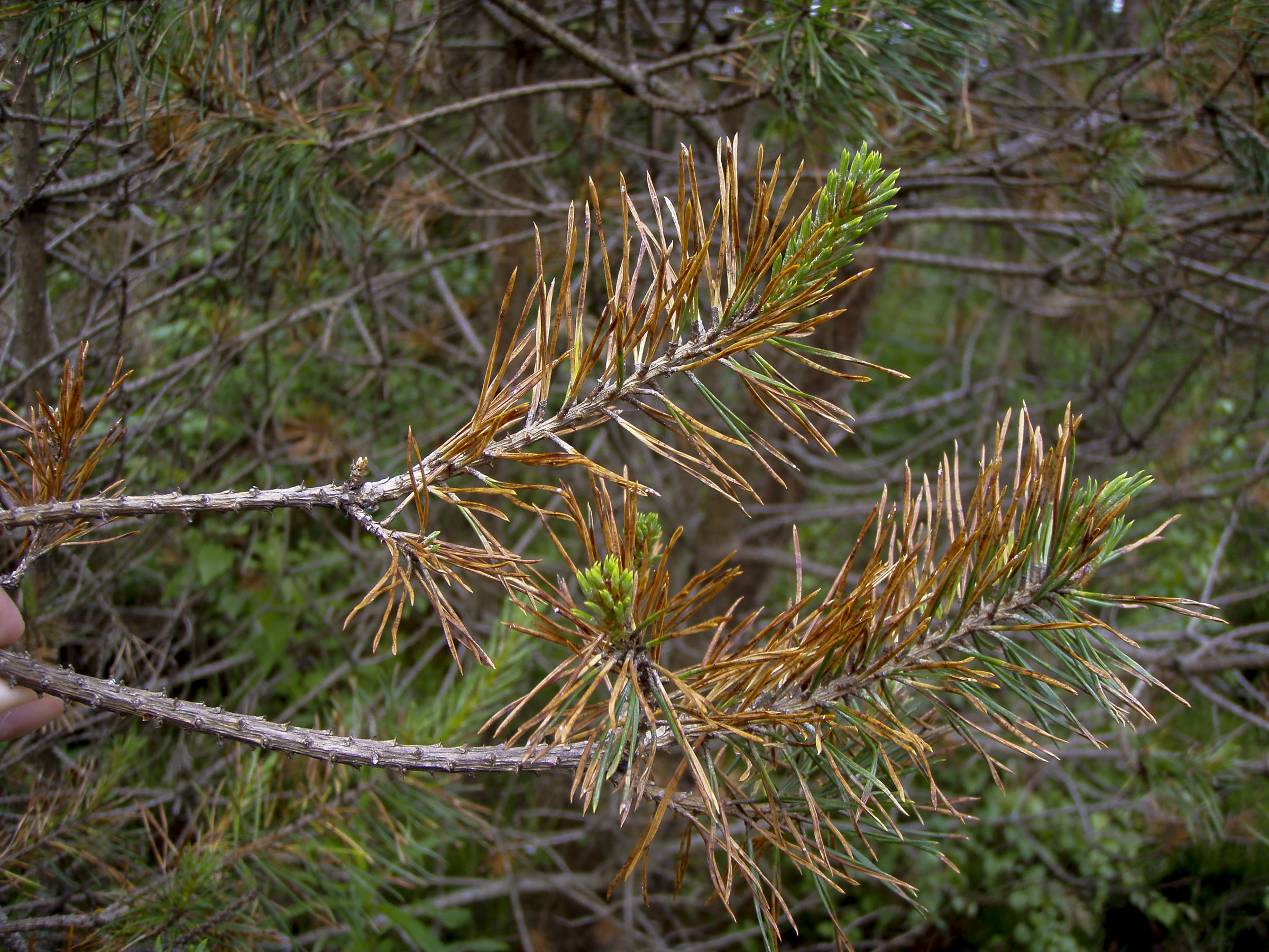Will foliar diseases become more damaging to our trees?
Foliar pathogens infect the leaves or needles of trees. Their spores have the potential to disperse long distances by wind and rain. Spore release and infection of hosts is linked to temperature and rainfall, suggesting foliar pathogens are likely to benefit from the milder winters and warmer and wetter springs predicted for the UK as the climate changes.
Climate change may cause an increase in the incidence and severity of foliar diseases and some pathogens might expand their host range. This can reduce tree growth and may lead to tree death which will reduce the benefits that trees provide, including their key role in climate-change mitigation.
Climate change may also create more favourable conditions for the survival, establishment and spread of new pathogens if they enter the country. Although it can be hard to predict which diseases will become problematic as climate changes, several are already occurring more frequently and impacting a number of tree species.
Many factors improve tree health and disease resilience including careful species selection for the site, well-planned planting operations, and sourcing healthy trees from nurseries with good biosecurity policies.
Invasive plant pathogens can be spread in infested planting material and this risk can be mitigated by ensuring good biosecurity practice throughout plant-supply chains.
The six main foliar pathogens already causing significant damage to conifers and broadleaved tree species in the UK are described along with the likely impact of climate change on their spread and severity.
About the series
Aimed at practitioners, the factsheets showcase the breadth of research carried out by Forest Research, sometimes over decades, into how trees and forests are facing the challenges of climate change, and actionable insights into how trees and woodlands can help mitigate the effects of climate change.
Related
- Xylella (Xylella fastidiosa)
- Sirococcus blight (Sirococcus tsugae)
- Bleeding canker of horse chestnut (Pseudomonas syringae pv aesculi)
- Sweet chestnut blight (Cryphonectria parasitica)

